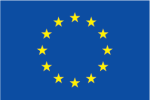Today, I received the course evaluation of a lecture on research integrity. During the Introduction Days, approximately 450 students in the Life Sciences get two lectures on research integrity before they are teamed up and have to prepare a discussion on one topic. In the course evaluation, similar numbers of students find these lectures both the most interesting part of the introduction days as well as the least interesting. For such huge numbers, it is quite challenging to keep their attention for 45 minutes.
Therefore, in previous years we presented the results of a short questionnaire on their own experiences, some of these questions asking about misconduct, most on grey zone questions where there are not always immediate right and wrong answers.


Leave a Reply